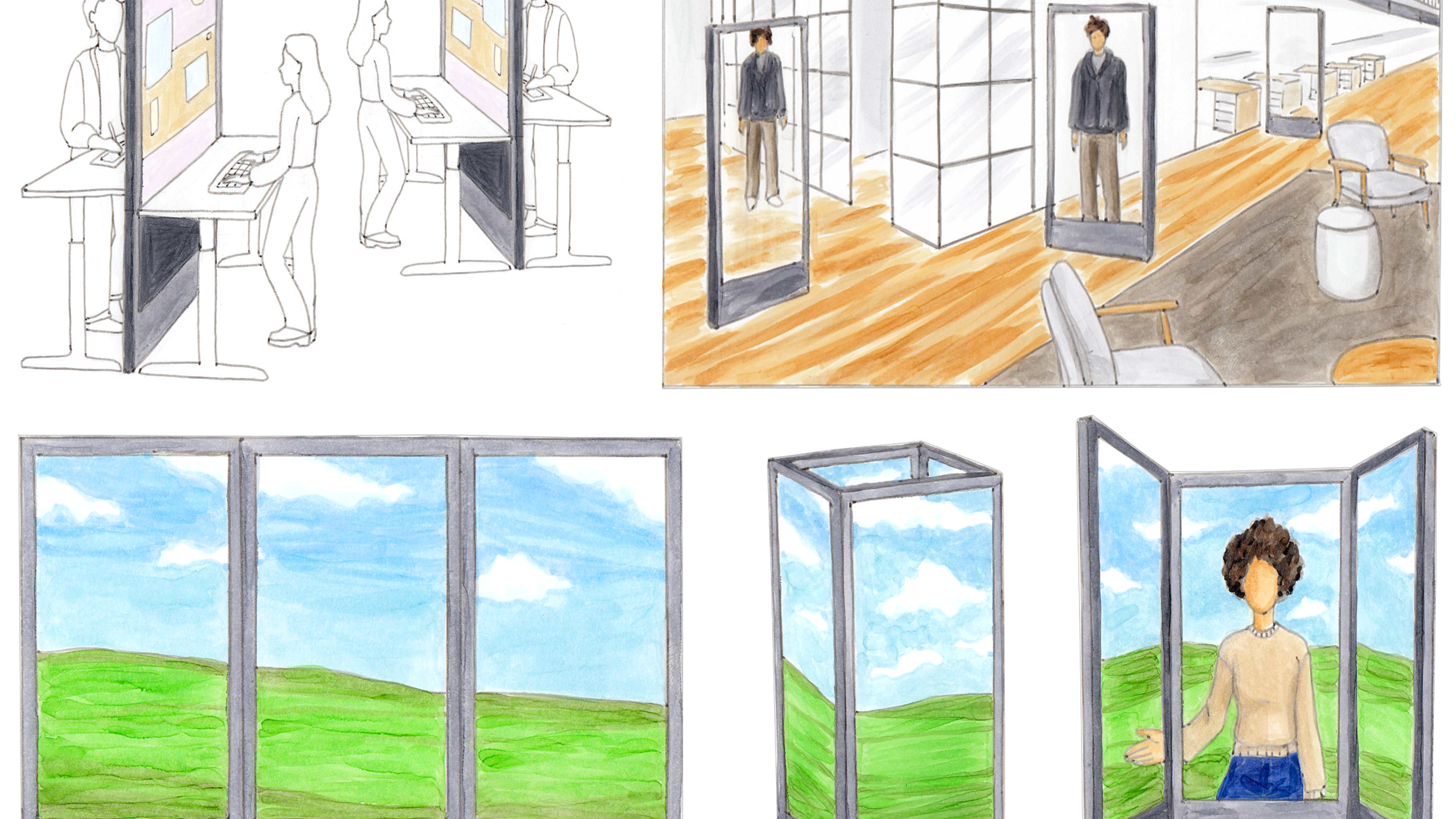Research - 03.02.2023 - 10:00
The working world: Offices that makes people work together, optimize hybrid work well
The pandemic has radically changed the way we work together. How does a space productively bring together colleagues who are present and those who work remotely? Together with Microsoft Research in Seattle, USA, researchers from the School of Computer Science at the University of St.Gallen are developing new types of office workplaces.
![[Translate to English:] Arbeitswelt: Das Büro, das Menschen hybrid gut zusammenarbeiten lässt](https://www.unisg.ch/fileadmin/_processed_/2/5/csm_Future-of-work_03_retouched_Prototyp-004_bf75f56d3b.png)
[Translate to English:] Wie bringt ein Raum anwesende und fernarbeitende Kolleg:innen produktiv zusammen? Zusammen mit Microsoft Research entwickeln Forschende der School of Computer Science an der HSG neuartige Büroarbeitsplätze.
For many industries, work will take place in a hybrid mode and will continue to do so in the future. According to a recent study, a large proportion of people who work in an office like to switch independently between working time spent in the office and time spent working at home. For employers, this mix of locally present and potentially globally dispersed employees presents new challenges: How are offices designed to allow space for a lively community and concentrated thinking at the same time? How can offices be optimized and adapted to these changes? How (can) equal work and interaction opportunities be created for each employee, whether at home or in the office, without losing the social component of the shared workplace?

Technologies of the future for better hybrid collaboration in the office
The Human-Computer Interaction (HCI) research group at HSG is now addressing these questions in a project with Microsoft Research. Together with colleagues from Microsoft, HSG doctoral student Daniel Neumann has developed a concept for the work of tomorrow with the help of hybrid displays. "We are distributing human-height, double-sided display computers to employees. This helps to make the best use of office space depending on workload and activity, as a wide variety of configurations are possible. To explore these possibilities, we've now built a prototype that serves as a flexible research platform."
The "Display Cubicle", for example, brings together home office employees with locally present colleagues in one workspace. The hybrid displays not only replace the classic workplace, which currently consists of people and computers. They also integrate promising technologies into everyday working life – for example, with augmented reality and virtual reality workstations in the office, which enable new forms of interaction with colleagues who work both locally and at different times. Daniel Neumann and Gian-Luca Savino from HSG's School of Computer Science are now testing the concept in a series of studies with specially built prototypes.
As the youngest of the six schools at the University of St.Gallen, the School of Computer Science (SCS-HSG) is the first school with a foundation in engineering. With its current eight research groups, the School, founded in 2020, covers a broad spectrum of focal points in computer science and is expanding the focus of the traditionally business-oriented university.
New applications for the world of work, the health sector and outer space
The Human-Computer Interaction research group of the School of Computer Science focuses on how technology can improve everyday human life. Furthermore, it researches how the interaction between the human user and the machine can be facilitated and run optimally. The broad field of application ranges from navigation technologies for mobility, health maintenance (public health) and medical applications to mediated social interaction and technological support for humans in space. Currently, five doctoral students and one postdoctoral researcher are conducting research at the interface of computer science and psychology under the leadership of Johannes Schöning.